


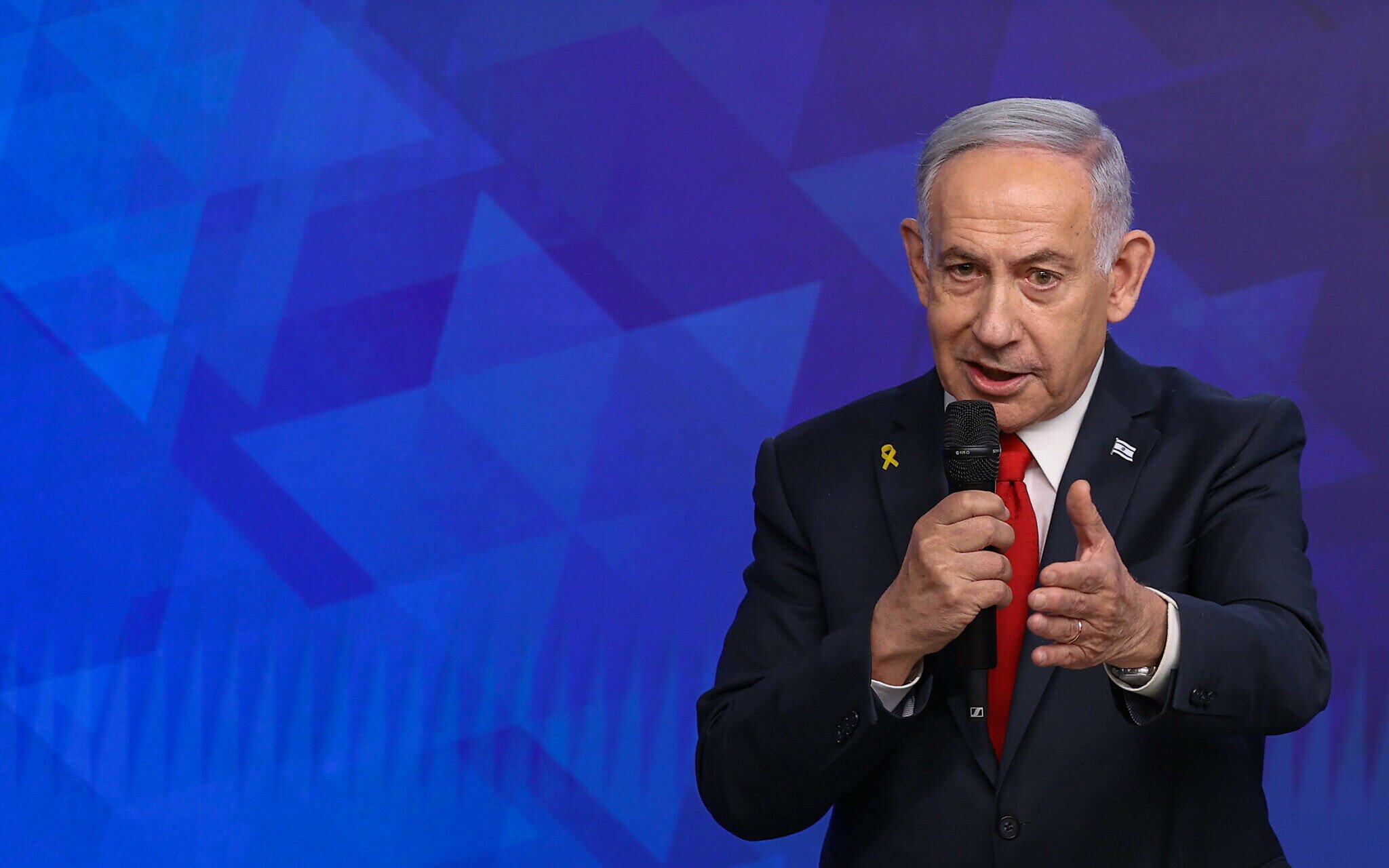
During his first press conference in five months, Prime Minister Benjamin Netanyahu on Wednesday named the implementation of US President Donald Trump’s “revolutionary� plan to relocate Gaza’s civilians as a condition for ending the conflict, the first time he has made such a demand.
The fledgling Operation Gideon’s Chariots — the IDF’s expanded ground operation in Gaza that began over the weekend— is meant to “complete the war, the workâ€� in the enclave, the premier told reporters and live TV cameras at the Prime Minister’s Office in Jerusalem.
Israel has a “very organized� plan to achieve its war aims in Gaza, he insisted, saying its aims are “To defeat Hamas, which carried out the atrocities of October 7; to bring back all of our hostages; and to ensure that Gaza does not present a threat to Israel.�
“Our forces are landing powerful blows that will get stronger against Hamas strongholds that still exist in Gaza,� he explained, promising that by the end of the operation, “all the territory of Gaza will be under Israeli security control, and Hamas will be totally defeated.�
While “ready to end the war” Netanyahu said he will only agree to do so “under clear conditions that will ensure the safety of Israel: All the hostages come home, Hamas lays down its arms, steps down from power, its leadership is exiled from the Strip… Gaza is totally disarmed; and we carry out the Trump plan. A plan that is so correct and so revolutionary.â€�
He said that if there is a possibility for a “temporary ceasefire� that will return more hostages, he would agree to that, but repeated that this would only be temporary.

“We will win — and it won’t take another year and a half. I don’t want to reveal the plans, but it will happen. We will reach a decisive outcome and a different future for Gaza,” said Netanyahu.
Asked about the ongoing Qatargate scandal, Netanyahu stated he “didn’t know anythingâ€� about his aides allegedly getting money from Qatar to boost the Gulf nation’s image, and that he “still doesn’t know” what happened.

Netanyahu claimed that he publicly attacked Qatar — one of the main mediators between Israel and Hamas in hostage talks — while others praised them, and that Israel is primarily using them to help get the hostages out.
“Qatar is not a friendly country,â€� he said, noting that Doha still supports Hamas, and that he is allowing a Knesset bill defining Qatar as a “terror-supporting state” to advance.
“Maybe the time has come to say the things in the clearest way possible, to our American friends as well. We are saying it,� he said, adding that maintaining contact with Qatar on the hostage issue must be included as a exception within the bill.
Netanyahu also claimed money controversially transferred by Qatar to Hamas was given “on the recommendation of the Shin Bet and the Mossad,” though the head of the former security agency at the time has said he opposed the funds. The prime minister denied that this money, transferred at his urging, enabled the October 7, 2023, terror onslaught, which marked the deadliest attack in Israel’s history and day for Jews since the Holocaust.
Seeming to downplay the lethal capabilities of Hamas, Netanyahu said members of the terror group “attacked us in flip-flops and with AK-47s and pickup trucks, which cost scraps.” He said no tunnels that Hamas might have built with the money penetrated Israel since he ordered an underground barrier built. Hamas did not have F-35s or tanks, he also said.
Thousands of Hamas members and other terrorists who breached the border on October 7 were highly trained and heavily armed, reports have shown, and operated within the 24 battalions of Hamas’s Qassem Brigades military wing. They held prior exercises, attacked in coordinated waves, and broke through the border in dozens of locations using anti-tank missiles, encrypted communications, naval commando units, and hang-gliders.
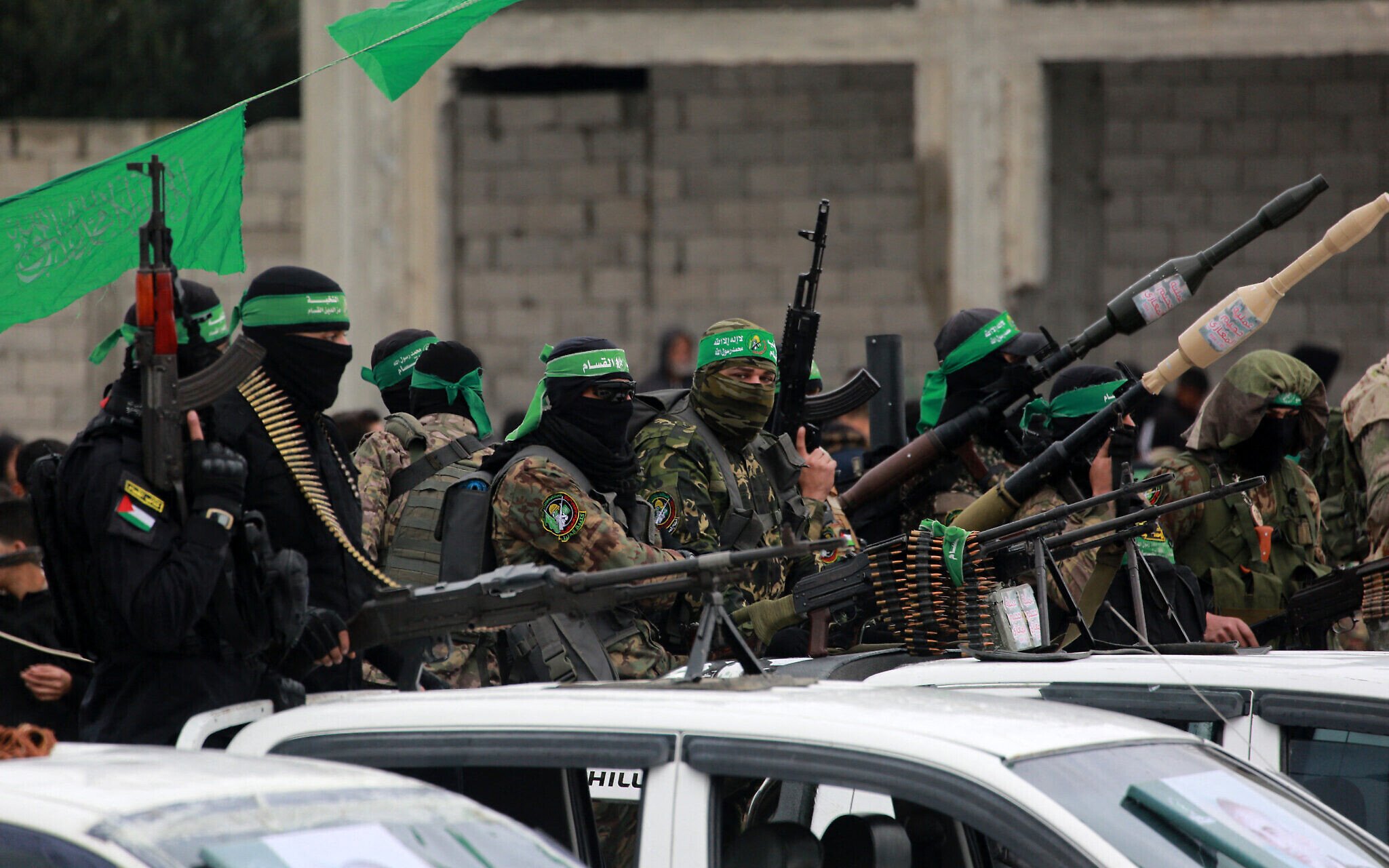
Netanyahu agreed that the failures of October 7 must be investigated and fully examined —“Everyone will bear the true responsibility. We need an objective commission, unbiased.”
The government hasn’t formed any commission of inquiry for 19 months, and opposes a state commission of inquiry, which successive polls show is the preferred option for most Israelis.
“This will be examined, and I will give answers, just like everyone else. But I am already being held accountable by the public every day. Every week there’s the possibility of a no-confidence vote. And once a no-confidence vote passes — the public has already made its decision. That will also happen in elections, when the time comes,” he said.
“Do you want elections now?…Do you want me to list what we’re up against right now? Is that what we need — a commission of inquiry right now — when all our soldiers and commanders will be running around dressing up as lawyers instead of arming themselves with artillery shells and tank munitions?”
Now, “in the middle of a war,” is not the time, argued the premier.
Asked about reports of a growing rift between him and Trump, Netanyahu asserted that Israel’s relations with the United States are positive, and that the US president’s warming relations with Arab states in the Middle East does not worry him.
Netanyahu said he was assured by Trump and US Vice President JD Vance in recent days that America has Israel’s back.
“A few days ago — I think around 10 days ago, maybe a little more — I spoke on the phone with President Trump. And he said to me, literally: ‘Bibi, I want you to know — I have absolute commitment to you. I have absolute commitment to the State of Israel,” said the premier.
He added that “Just a few days ago, I spoke with Vice President Vance. He said to me… ‘Listen, don’t pay attention to all this fake news about this rupture between us… It’s all spin. This isn’t the truth, you know it’s not true, and I’m telling you, from our side, it’s not true.’â€�
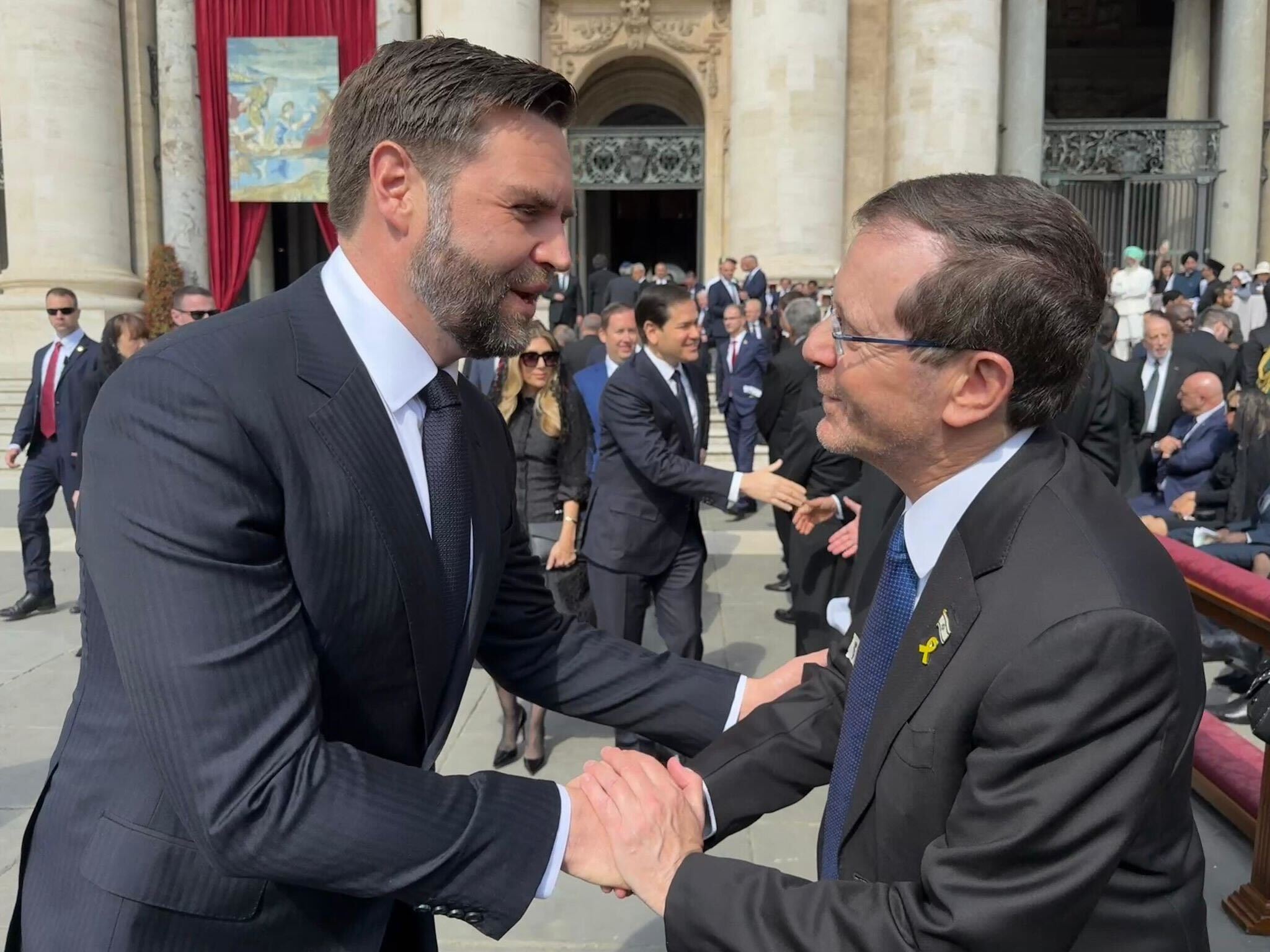
“We’re coordinated with the [Trump] administration,� continued Netanyahu, “We speak with each other. We respect their interests, and they respect ours — and they overlap. I won’t tell you they align completely, obviously not, but they align almost completely.�
Netanyahu expressed support for Trump’s objectives of tightening relations with Gulf nations in the Middle East, demonstrated by the president’s visit to Saudi Arabia, Qatar, and the United Arab Emirates last week, saying his American counterpart’s moves could serve Israel by facilitating additional Abraham Accords normalization agreements.
“I have no objection to the United States deepening its ties in the Arab world. That’s absolutely fine. And I’ll tell you even more — I believe that can actually help expand the Abraham Accords, which I’m very invested in. I’m interested in that.�
During the roughly two-and-a-half years in which he and Trump’s first administration prepared the Abraham Accords–which saw Israel normalize ties with Bahrain, the UAE, and Morocco–Gulf states were speaking very harshly about Israel, said Netanyahu.
“But beneath the surface, something very different was happening. And I think there’s a possibility that this could happen again. I would be very happy if it does, because it’s one of my goals,� he said.
Saudi Arabia was in advanced talks on joining the Accords in 2023, backed by then-president Joe Biden’s administration, before the October 7 onslaught by Hamas against Israel that same year sparked the ongoing war and disrupted the normalization process.
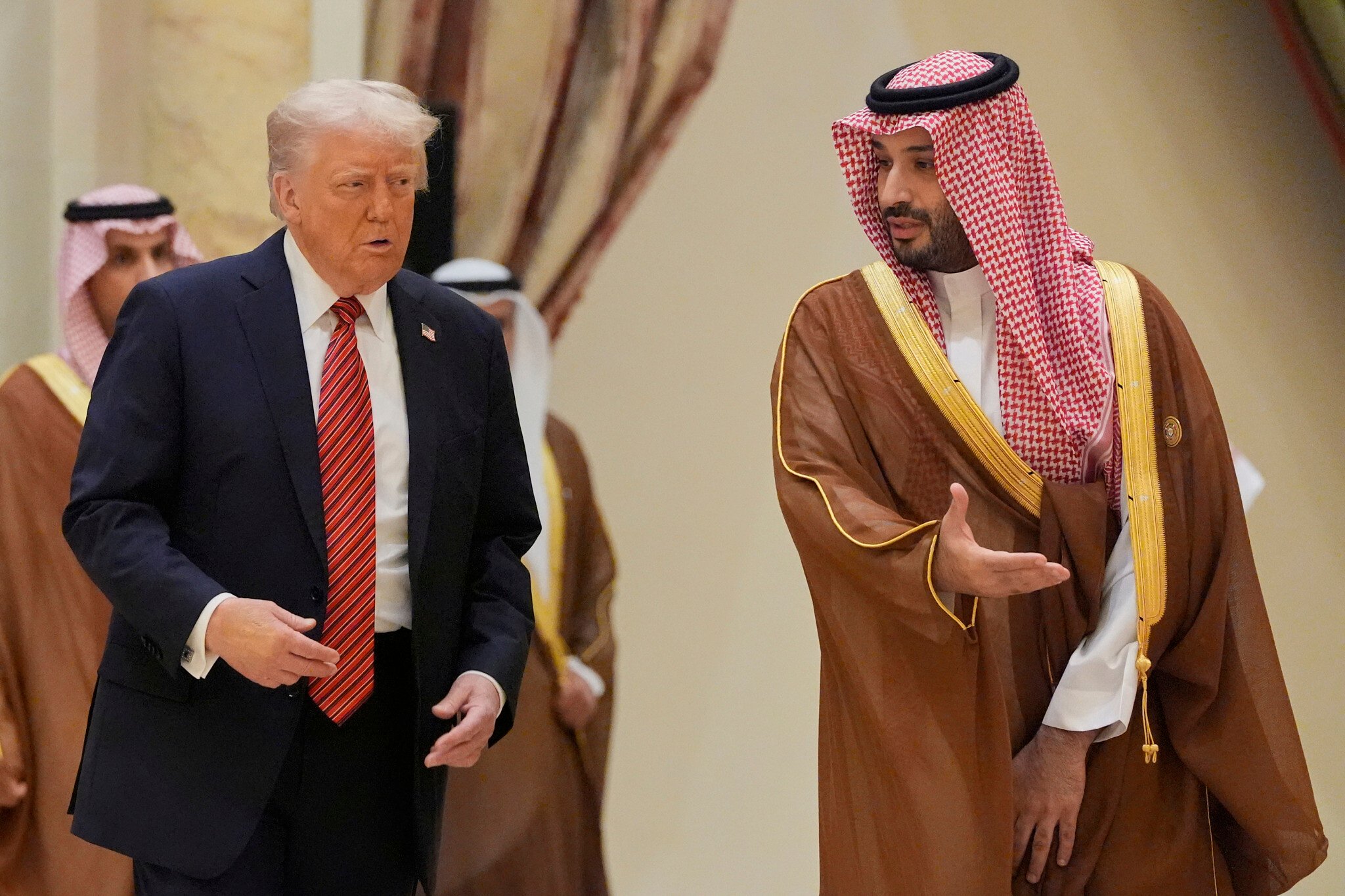
“I’ve always wanted to expand the circle of peace, to extend a hand to our friends and push back the sword of our enemies. I’m very determined in this, and I’m focused on it,” said Netanyahu.
Addressing Jerusalem’s relations with Europe, Netanyahu said that harsh rhetoric and punitive actions, including sanctions, from European nations demanding an end to the war in Gaza “will not influenceâ€� Israel’s national security policies.
“European countries will not influence us and they will not cause us to abandon our core objectives — ensuring the security of Israel and the future of Israel,â€� said Netanyahu in response to a question on how he plans to respond to severe condemnation of Israel’s actions in Gaza by European allies.
In recent days, European nations have called on Israel to halt its expanded military campaign in the Strip and lift restrictions on humanitarian aid for Gazan civilians.
In his opening remarks at the press conference, Netanyahu said that his decision to resume aid deliveries to the Strip on Sunday, a move deeply unpopular among right-wing Israelis, was made to prevent a humanitarian catastrophe in Gaza and maintain support from Israel’s allies.
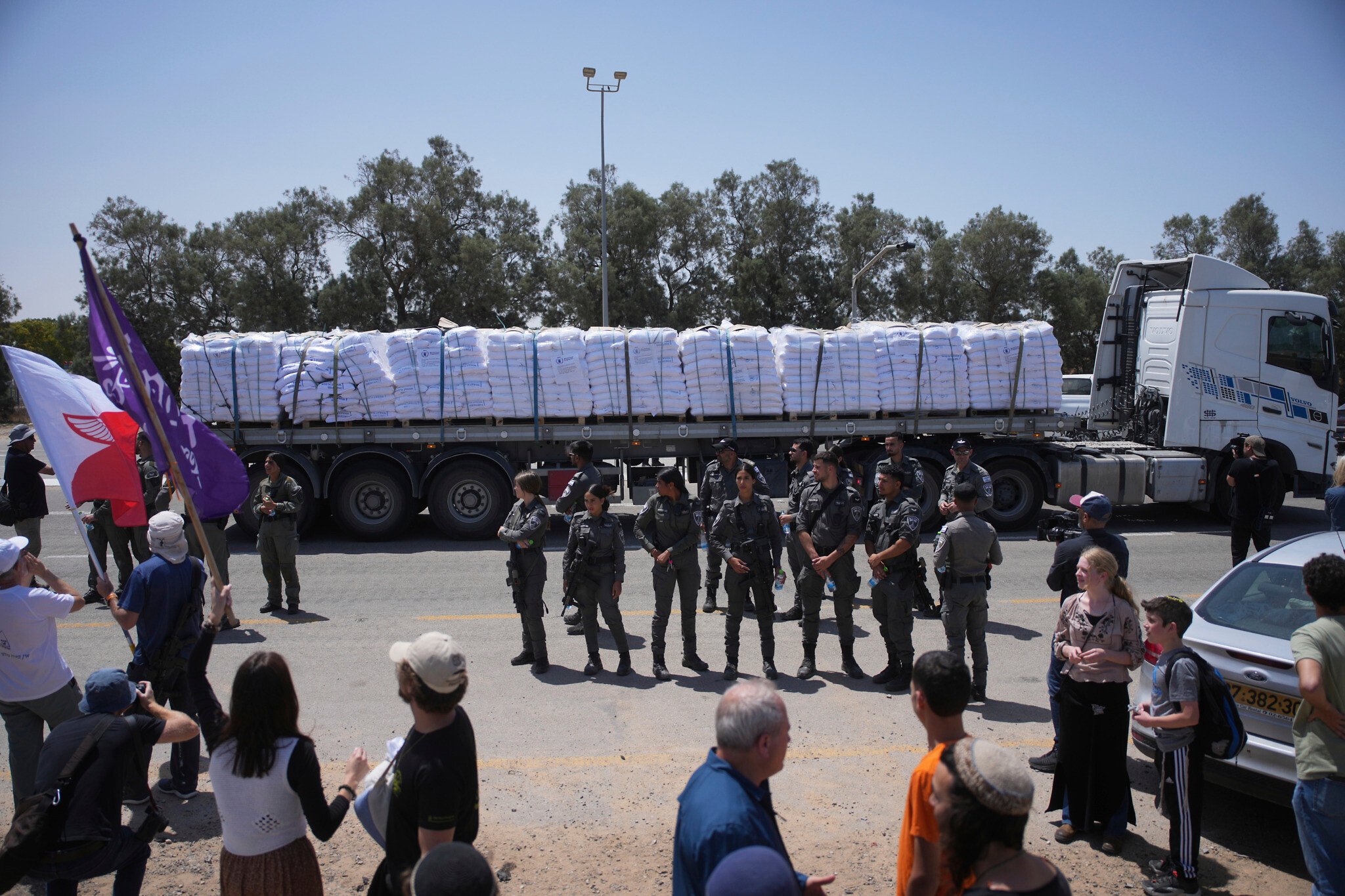
Stressing that Hamas loots aid shipments and sells the supplies at exorbitant prices to fund its military activities, Netanyahu said that Israel developed along with the US a humanitarian aid plan to bypass Hamas members. US Ambassador Mike Huckabee earlier this month claimed it was an American plan, not an Israeli plan.
Netanyahu said the plan has three stages – the entry of “basic food now� into Gaza to prevent a humanitarian crisis; opening aid distribution points in the coming days by private US companies; and creating a “sterile zone� in southern Gaza for the civilian population to shelter in.
“In this zone, which will be totally free of Hamas, residents of Gaza will receive full humanitarian aid,� he explained.
On Monday evening, British Prime Minister Keir Starmer, French President Emmanuel Macron and Canadian Prime Minister Mark Carney threatened in a joint statement to take “concrete actions� against Israel if it refuses to halt its military campaign and address the need for aid in Gaza, as well as pause the expansion of West Bank settlements and work toward a two-state solution. The leaders called the minimal supplies Israel permitted on Sunday “wholly inadequate.�
On Tuesday, the United Kingdom announced a pause in free trade talks with Israel and imposed sanctions on West Bank settlers, while the European Union agreed to review its cooperation deal with Israel, citing alleged human rights abuses in Gaza.
“We will do what is necessary to complete the war,� said the premier when asked if Israel is prepared to accept such threats and sanctions from Europe in pursuit of its war goals.
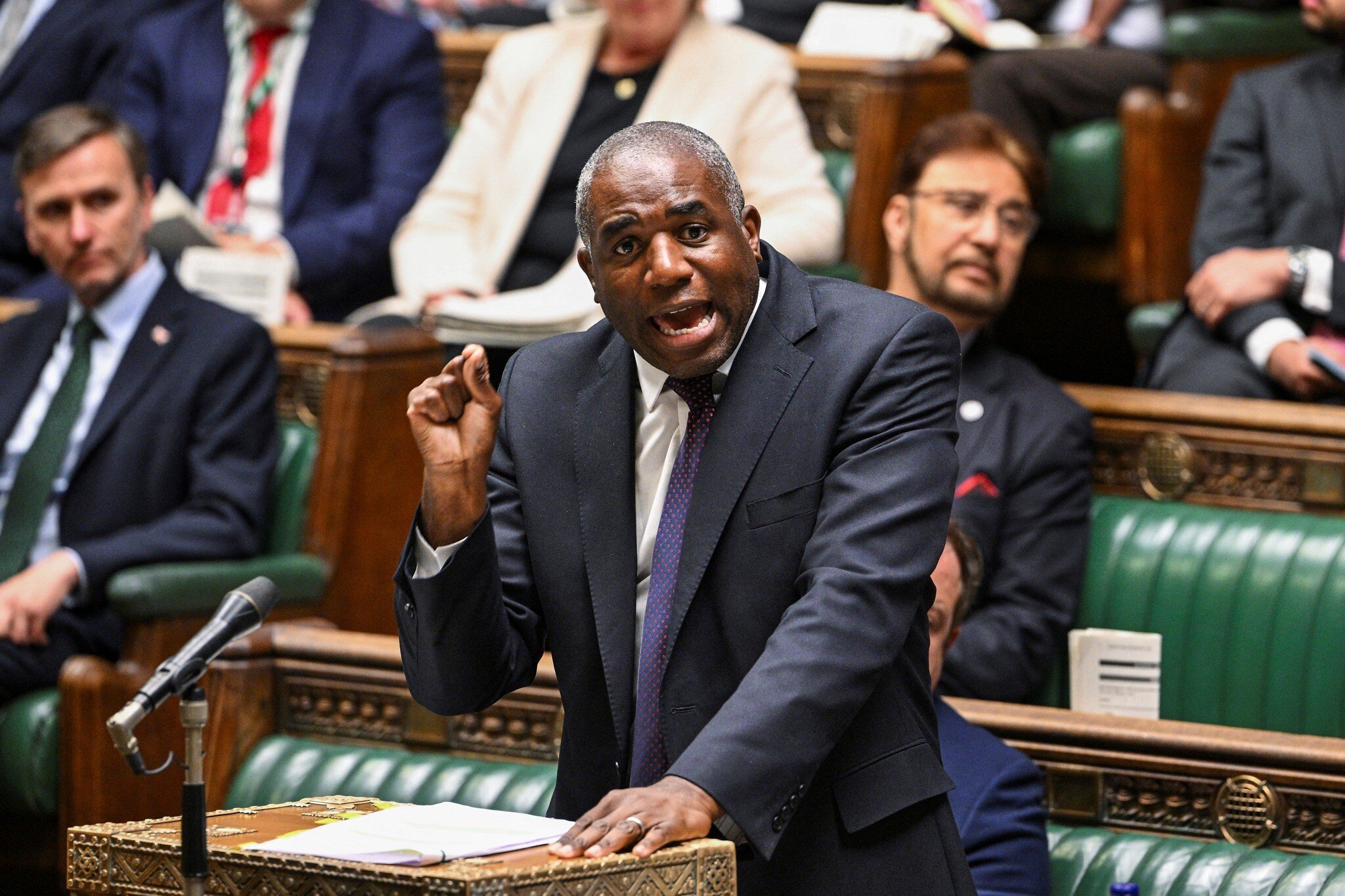
“It is a badge of shame that Britain, instead of imposing sanctions on Hamas, is imposing sanctions on a woman who is threatened daily on the roads of Judea and Samaria by Hamas terrorists,� Netanyahu said, likely referring to veteran settler leader Daniella Weiss, who was among those sanctioned by the UK.
“All those images — the hunger, the claims that ‘44,000 children are about to die’ — all of that false propaganda echoes over there, and they cave to it,� said the premier, possibly referring to a UN report earlier this week that 14,000 babies in Gaza would soon die if proper nutrition doesn’t reach them.
“It’s a total loss of moral direction. These countries are under pressure — from the Islamic minority within them, and from public opinion shaped by Hamas’s false propaganda,� the premier said.
“The sanctions that are truly concerning,â€� said Netanyahu, would be imposed by the United Nations Security Council. “Binding sanctions — a resolution we will not allow,â€� he emphasized.
According to Netanyahu, as a condition for a deal releasing hostages and ending the war, Hamas would demand that the Security Council pass binding sanctions to damage Israel’s economy and national security were it to resume fighting the terror group at a later time — thus necessitating that Israel finish the job now.
Such an agreement would require a guarantee from the US, a crucial mediator in the hostage-ceasefire talks between Israel and Hamas, not to veto such sanctions in the initial vote.
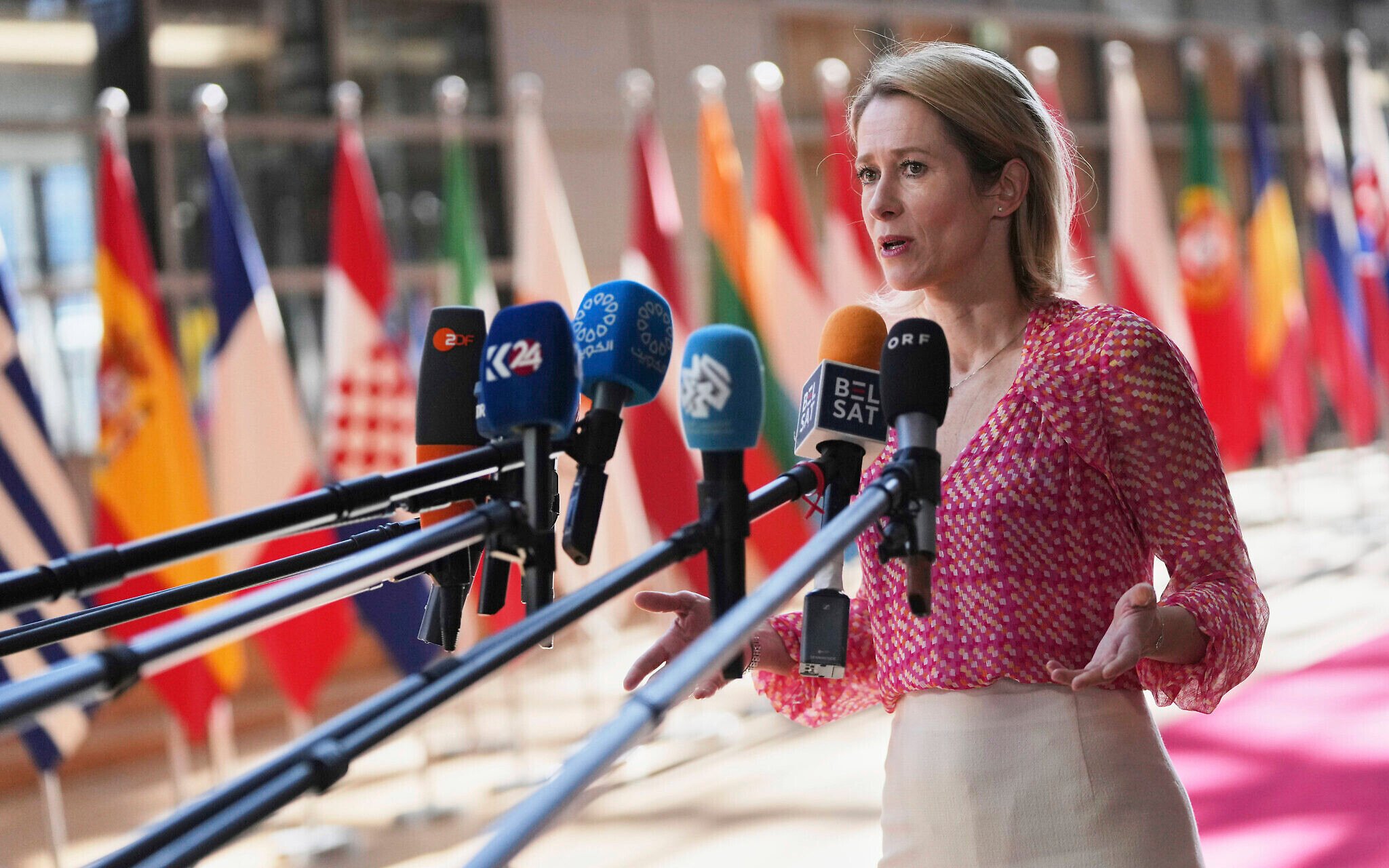
“This is Hamas’s goal,� he said. “They want to stop the war, end it, and push through a binding Security Council resolution — one that would compel 180 countries to impose sanctions on us.�
He said those who argue for Israel to end the war on Hamas’s terms “forget that it won’t come for free. You’d have to evacuate the entire Gaza Strip. There would be a binding resolution in the Security Council that would crash Israel’s economy completely, and also our security systems. It’s insane. Simply insane,â€� he continued.
Netanyahu also rejected the prospect of European nations unilaterally recognizing a Palestinian state.
“We strongly oppose their intention to give Hamas the ultimate prize — to recognize a Palestinian state. After October 7 — after we saw what a de facto Palestinian state looks like — it was called Gaza. Hamas’s Gaza. Hamastan. And now they want to create another one? There is no greater reward for terror,� he said.
